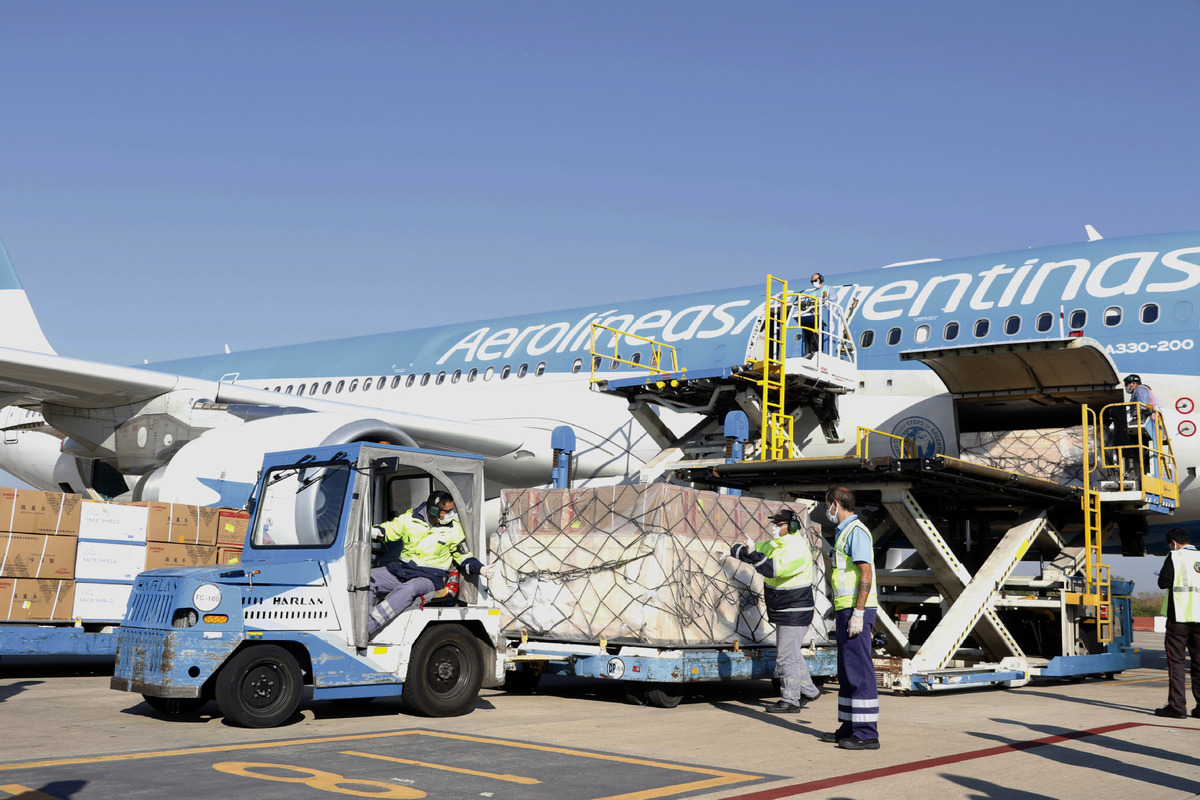Trade feels the heat as nations face pandemic


Multilateralism crucial to counter economic barriers, rising protectionism, analysts say
Measures to fight the coronavirus pandemic have indirectly fueled the rise of protectionism and other economic barriers, in turn highlighting the importance of preserving and maintaining the multilateral trading system, according to analysts.
From the deliberate disruption of global supply chains to restrictions on crucial goods such as medical equipment, various countries are closing their borders and cutting trade channels against what is needed to stem an impending global recession by the COVID-19 impact, top economists heard at an international forum organized by the Beijing-based Center for China and Globalization, a leading think tank, on Monday.
The discussion, part of an online series tackling major pandemic-related issues facing the international community, focused on the role of the World Trade Organization in response to the unprecedented public health threat and its economic fallout.
Trade has always proved to be an important stimulus in overcoming global crises and resuming the multilateral trading mechanisms under the WTO was urgently needed, said the think tank's president Wang Huiyao, who chaired the forum.
Pascal Lamy, former director-general of the WTO and chair of the Paris Peace Forum, said that in response to the pandemic, members of the global community were facing more precautionary measures, restrictions on exports and the movement of people, subsidies, the reframing of localization systems by companies, a shortening of value chains and other unilateral actions that could distort markets and competition.
"The WTO and the multilateral trading system should keep leveling the playing field, which is a basic condition for trade to remain open," he said.
Alan Wolff, WTO deputy director-general, said there has not been enough coordinated response to the pandemic, with many of the measures at the national level. The COVID-19 impact on world trade is likely to be dramatic and response to it must include preparations for a "second wave", he said.
While countries have been responding with trade restrictions, there have also been positive instances of trade liberalization to open sectors like healthcare and agriculture as part of anti-epidemic support, Wolff said.
The serious challenges brought about by the pandemic mean focus must now be on WTO trade reform measures, which will significantly benefit from any breakthrough toward globalization, said Huo Jianguo, vice-chair of the China Society for World Trade Organization Studies.
"WTO reform needs cooperation. China has clearly stressed, at the high level, the need to open up. In some negotiations, we need better understanding and China will show some flexibility. We need to make this workable," he said.
Wendy Cutler, vice-president at the Asia Society Policy Institute and a former acting deputy US trade representative, said multilateral response and leadership to face COVID-19 have been relatively weak, and WTO reform is necessary as the world readies for a "long recession".
Focus can be on sectoral negotiations covering areas such as medical supplies and treatment, as well as digital developments in e-commerce and communications that have emerged amid the disease outbreak, she said.
"At the end of the day, the WTO is a member-driven organization. It's got to come from the members and let's be honest, that's been a challenge," Cutler said.
"Second, US-China relations overall are not in great shape ... On the trade front, there's progress made with the phase one trade deal but when you look in the WTO there's been a lot of friction between the US positions and China positions. That said, I do believe that some of the ideas that we're putting forward now could benefit from US-China cooperation and in some of these areas there's great overlap of interests and concerns."
The pandemic is certainly not the main reason behind the challenges facing the WTO, with China-US differences already taking center stage for many years, according to Tu Xinquan, professor and dean of the China Institute for WTO Studies at the University of International Business and Economics.
"The Trump administration doesn't have any interest in reviving the WTO at all; however, the administration does not represent the mainstream," he said.
"We would welcome US leadership back on the world stage. For China, it is really time to take more responsibilities especially in the WTO."
"Members are now talking about WTO modernization and reform. In this context, China can take some concrete steps to accelerate its domestic reforms on the relationship between government and the market … at the same time cooperate with members to update the rules on those issues," Tu said.
"Only when both the US and China are willing to take on their responsibilities to the WTO can its authority be revived, to regulate world trade and fight the destructive trade measures," he said.
James Bacchus, professor of global affairs at the University of Central Florida and former chief judge at the WTO Appellate Body, stressed the need for members of the WTO to consider their moral obligations to its less developed stakeholders.
"What do we owe to each other? What do we owe to people on the far side of the world? … What we're seeing worldwide in this weakness of the multilateral response is an increasing 'turning away' from global solutions and inward to nationalism, protectionism and outright xenophobia," he said.
The US and China, as the two largest economies, must work together for any solution to the systemic risks of globalization to succeed, Bacchus said.
































